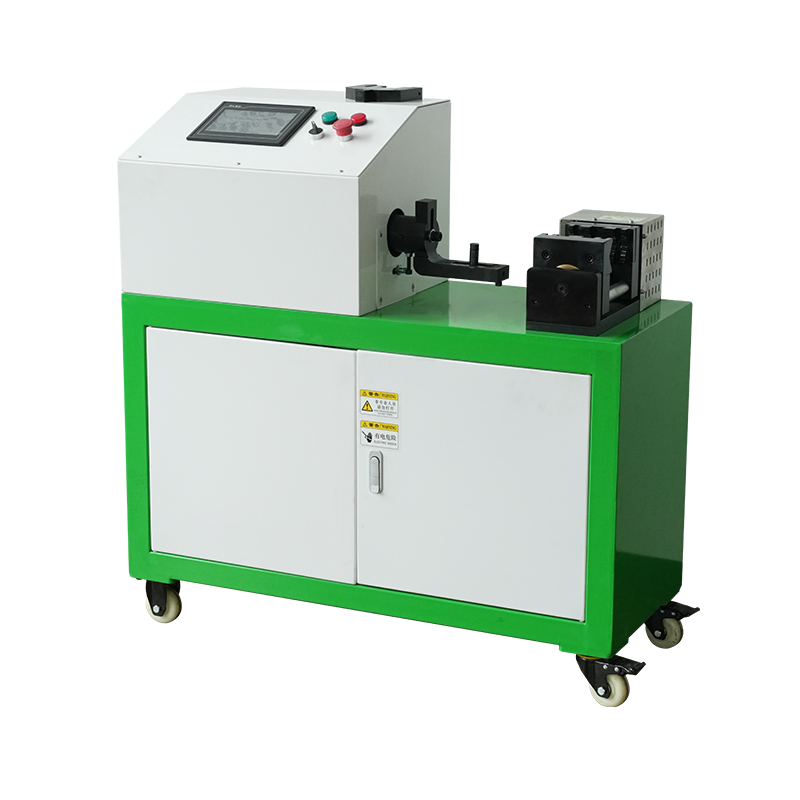Intelligent Threading Machine
1. Automatically identify the pipe diameter 2. Automatic tool adjustment and setting 3. Thread diameters from 15mm to 100mm 4. Threading time as lo...
See DetailsIn modern manufacturing, automation is no longer a luxury—it’s a necessity. Among the many automated tools available, intelligent pipe twisting machine has emerged as a critical technology in industries that require precision twisting of pipes, wires, or tubes. One of their most tangible benefits is the reduction of labor costs. This article explores how these machines achieve this, examining their design, functionality, and overall impact on operational efficiency.
Intelligent pipe twisting machines are automated systems designed to twist pipes or tubes in a precise and consistent manner. Unlike traditional manual methods, these machines combine mechanical engineering with software control to perform repetitive tasks efficiently. They can handle various pipe sizes, materials, and twisting patterns while maintaining a high level of accuracy.
These machines often integrate features such as:
By automating these processes, the machine not only increases productivity but also directly reduces the need for intensive manual labor.
Traditionally, pipe twisting required multiple operators to handle, measure, and twist pipes manually. This process is labor-intensive, time-consuming, and prone to human error. Intelligent pipe twisting machines take over these repetitive tasks. A single operator can now oversee multiple machines simultaneously, dramatically reducing the number of personnel needed on the production floor.
For example, instead of employing four workers to manually twist pipes, a factory may only need one or two operators to manage the intelligent machines, while the machines handle the bulk of the workload automatically.
Automated machines operate faster and more consistently than humans. By reducing the time required for each twisting operation, production output increases without proportionally increasing labor hours. This efficiency means that companies can meet higher production targets with fewer employees, translating into significant labor cost savings.
Human error in manual twisting often leads to damaged pipes, inconsistent twists, or the need for rework. Rework increases labor costs because employees must spend extra time correcting mistakes. Intelligent machines, however, follow precise programmed instructions, minimizing errors and the associated labor. The result is a more streamlined production process and lower indirect labor costs.
Manual pipe twisting requires skilled workers who understand the nuances of pipe handling, tension, and twisting patterns. Training new employees for these skills can be expensive and time-consuming. With intelligent machines, operators need less specialized training since the machine handles the technical details. Companies save money on training programs and can reassign labor to other tasks.
By automating repetitive tasks, businesses can reallocate human resources to higher-value activities such as quality control, machine maintenance, or product development. This strategic allocation of labor ensures that workers are engaged in tasks that contribute more directly to business growth while the machines handle routine operations.

While the primary focus is labor costs, intelligent pipe twisting machines contribute to savings in other areas that indirectly reduce labor-related expenses:
In industries like construction, automotive, and HVAC, intelligent pipe twisting machines have demonstrated measurable labor cost reductions. Factories implementing these machines report:
These numbers highlight how automation does not merely replace labor but optimizes the workforce, creating a leaner and more efficient operation.
Intelligent pipe twisting machines exemplify how automation transforms labor-intensive processes. By minimizing manual work, increasing productivity, reducing errors, lowering training needs, and optimizing workforce allocation, these machines play a pivotal role in reducing labor costs. Companies that adopt intelligent automation for pipe twisting not only save money but also improve efficiency, consistency, and workplace safety.
As industries continue to embrace smart manufacturing, intelligent pipe twisting machines will likely become standard equipment, providing both operational efficiency and substantial labor cost savings.